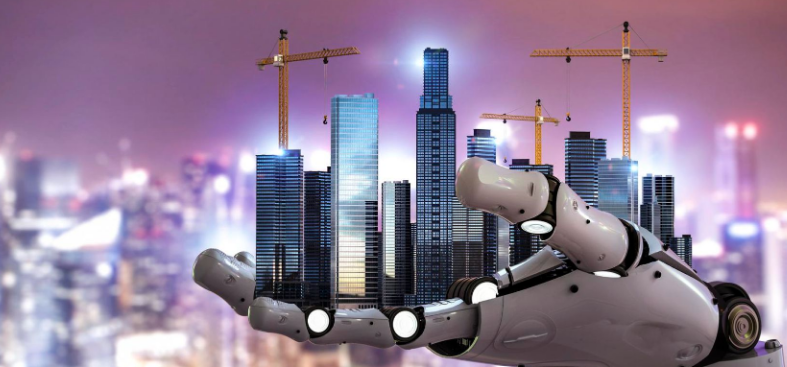Exploring AI-Driven Optimization in Civil Engineering
Artificial intelligence (AI) is revolutionizing industries across the globe, and civil engineering is no exception. By leveraging AI-driven optimization, civil engineers are enhancing efficiency, reducing costs, and improving project outcomes. This article explores how AI is transforming civil engineering and the various applications of this cutting-edge technology.
1. AI in Civil Engineering: An Overview
AI-driven optimization involves using machine learning algorithms and data analytics to improve decision-making processes and project execution. In civil engineering, AI can be applied across various phases, from design and planning to construction and maintenance.
- Enhanced Decision-Making: AI provides engineers with predictive insights, helping them make more informed decisions.
- Increased Efficiency: Automation of repetitive tasks and optimization of resource allocation streamline workflows and reduce project timelines.
2. Applications of AI in Civil Engineering
AI-driven solutions are making a significant impact on several key areas of civil engineering. Here’s how AI is being used to optimize processes and outcomes:
Design and Planning Optimization
AI algorithms can analyze vast amounts of data to generate optimal designs and construction plans.
- Generative Design: AI-driven generative design tools create multiple design alternatives based on project parameters and constraints, allowing engineers to choose the most efficient and cost-effective option.
- Predictive Modeling: AI models predict potential challenges and outcomes, enabling proactive planning and risk mitigation.
Construction Management
AI technologies streamline construction management by automating processes and enhancing project monitoring.
- Construction Automation: Robots and automated machinery, powered by AI, perform tasks such as bricklaying, concrete pouring, and site inspection with greater precision and speed.
- Real-Time Monitoring: AI-driven drones and sensors monitor construction sites in real-time, providing valuable data on progress, safety, and quality control.
Structural Health Monitoring
AI plays a crucial role in ensuring the safety and longevity of infrastructure through continuous monitoring and analysis.
- Sensor Integration: AI-powered sensors embedded in structures collect data on stress, vibration, and temperature, identifying potential issues before they become critical.
- Predictive Maintenance: Machine learning models predict the lifespan of structural components, enabling timely maintenance and repairs, thus extending the life of the infrastructure.
3. AI-Driven Optimization in Infrastructure Projects
Large-scale infrastructure projects benefit immensely from AI-driven optimization, improving efficiency and sustainability.
Transportation Infrastructure
AI is revolutionizing transportation infrastructure by optimizing traffic flow, improving safety, and reducing environmental impact.
- Smart Traffic Management: AI systems analyze traffic patterns to optimize signal timings, reduce congestion, and improve traffic flow.
- Predictive Maintenance for Roads and Bridges: AI models predict wear and tear on roads and bridges, allowing for timely repairs and reducing the risk of catastrophic failures.
Water Resource Management
AI technologies enhance water resource management by optimizing distribution, reducing waste, and predicting demand.
- Leak Detection: AI-driven analytics detect leaks in water distribution systems, minimizing water loss and reducing repair costs.
- Demand Forecasting: Machine learning models predict water usage patterns, helping utilities manage supply and demand more effectively.
4. Challenges and Opportunities
While the potential of AI in civil engineering is vast, there are several challenges and opportunities to consider:
Data Availability and Quality
AI-driven optimization relies heavily on high-quality data. Ensuring the availability of accurate and comprehensive data is crucial for the success of AI applications.
- Data Collection: Implementing robust data collection systems, such as IoT sensors and drones, is essential for gathering relevant data.
- Data Management: Effective data management practices, including storage, processing, and analysis, are necessary to maximize the value of AI technologies.
Integration with Existing Systems
Integrating AI-driven solutions with existing systems and workflows can be complex and requires careful planning and execution.
- Interoperability: Ensuring AI systems are compatible with existing software and hardware is critical for seamless integration.
- Change Management: Training and upskilling the workforce to adapt to AI-driven processes is essential for successful implementation.
5. Future Prospects of AI in Civil Engineering
The future of AI in civil engineering looks promising, with continuous advancements poised to further enhance the industry.
AI and Sustainable Development
AI-driven optimization supports sustainable development by improving resource efficiency and reducing environmental impact.
- Green Construction: AI models optimize the use of materials, reducing waste and promoting sustainable construction practices.
- Energy Efficiency: AI technologies enhance energy efficiency in building design and operation, contributing to reduced carbon footprints.
Advanced Predictive Analytics
Future developments in predictive analytics will enable more accurate forecasting and proactive decision-making.
- Disaster Prediction and Management: AI models will predict natural disasters such as earthquakes and floods, enabling better preparedness and response.
- Lifecycle Analysis: AI-driven lifecycle analysis will optimize the entire lifecycle of infrastructure projects, from design to decommissioning.
Conclusion: Embracing AI-Driven Optimization in Civil Engineering
AI-driven optimization is transforming civil engineering, offering unprecedented opportunities for efficiency, cost savings, and sustainability. By embracing AI technologies, civil engineers can tackle complex challenges, enhance project outcomes, and contribute to a more sustainable future. As the field continues to evolve, the integration of AI in civil engineering will undoubtedly play a pivotal role in shaping the infrastructure of tomorrow.

Also Read :
- Neurosurgery in Developing Countries: Challenges and Opportunities
- Neurosurgery for Pediatric Patients: Challenges and Triumphs
- The Cutting Edge: How is Shaping Tomorrow’s Engineering
- Engineering the Future: Insights from Our Research on agriculture catastrophe
- Pioneering Solutions: Exploring liqour development in Engineering
